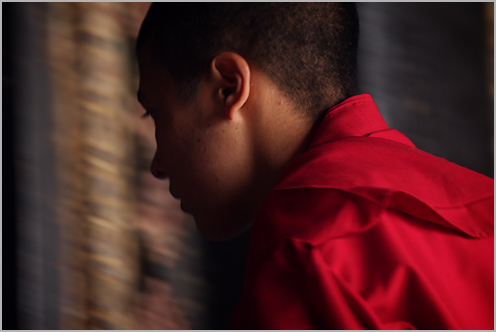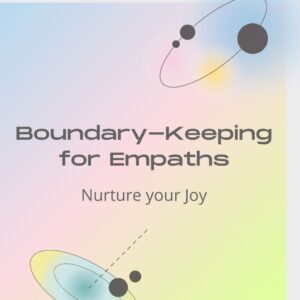
by user_dd | Apr 30, 2016 | Transitory Thoughts
I was about to die…
I could see it coming. First my eyes would glaze over from the pain, and then my body would keel over from exhaustion, and then everything would go black. It was going to happen, in like two seconds, I know it. Just wait…
Well, I kept on waiting, staring at the blank wall of the ‘international’ student dorm room I had come to know all too well over the past 10 days. It looked much nicer from the outside than those constructed for the ‘locals’ visiting the temple, but I wasn’t sure what the difference was—probably just that we had private showers.
Every morning at 4:45am I woke to the silent dawn of Chiang Mai, meditated for a few hours, then caught a quick shower and breakfast. It was always the same grub—rice porridge with your choice of red pepper flakes or sugar. As soon as breakfast was over, I’d scurry on back to my room to continue my meditation practice for the rest of the day.
It’s actually quite surprising how hard it is to get 12 hours of meditation in during a 24-hr period (note how I didn’t say ‘day’ there), but that was the suggestion by the Temple’s abbot. And of course, I took it, because meditation should be HARD, right? I should be challenging and confronting and painful. The Theravada Buddhists have a reputation for the intensity of their practice, but I think it’s just because they tend to attract people with my kind of misconceptions around meditation. Or the human mind just goes there on it’s own. I’ll go with all of the above, final answer.
If there’s one thing I’ve learned
in my meditation practice over the years, it’s that the mind goes lots of places: emotions, attachments, desires; sleep, attentive, drowsy; crazy, dark, joyful… literally everything you can think of (ba-dum-ching!).
If there’s another thing I’ve learned…
In my meditation practice over the years, I’ve learned that “where your mind goes” doesn’t matter. Let your mind go where it will. Or go ahead and try and reel it in. While you’re trying to perfect the imperfection, as long as your body goes on sitting on that cushion with the intention of meditation, you’re doing meditation. So consider it all a success, no matter how it feels, or what you think about it, JUST DO IT!
And when you still need support because you saw unicorn horns get cut off by flying saucers and now you’re scared of where your mind will go next—go to Multi-Modal Meditation and I’ll show you a few ways to stave off the crazy and stay grounded in your practice.
But I can’t promise those hornless unicorns won’t come back to haunt you…

by user_dd | Jan 14, 2016 | Transitory Thoughts
It can be tough to take on someone else’s experience, but in the end, attempting empathy will help you (and others) growth.
A SHIFT IN OUR SENSES
Part of the shift we’re going through as a society is experiencing new forms of understanding. This happens at a deeper level than words and body language—it involves two souls communicating directly. It is a dance of energy and feeling.
As we grow in our awareness of a multidimensional reality, we learn how to engage with the world a little differently. This applies strongly to romance. With a US divorce rate of around 50%, it pays to wonder how to build a strong love life.
There are many relationship techniques you can pick up, and some of them are useful. What we’ll be talking about here, though, is empathy. This is the ability to sense the emotions of another person. It gives you valuable information and enhances bonding.
HIGH-END RELATIONSHIPS
Imagine coming home and saying hi to your partner. They smile, but you can just feel that something is off. You ask them how their day went, and listen carefully to anything that stands out. You check out their tense lip and fidgety fingers. Then it happens…one thing leads to another, and all of a sudden you’re in a fight! And why exactly?
Empathy opens up a broader range of experiences. Instead of being confused or saying the wrong things, you start to become a bit more fluid in social interactions. You’re tuned into a channel you never heard before. Even if you do make a faux pas, you can course correct more easily.
Enough talk. Whenever it comes to things like developing awareness and exercising your intuition, the best course is real world practice. Here are 3 keys to start using empathy.
KEY #1: CLEAR YOURSELF
Ever try to talk with someone in a noisy room? How’d that work?
If you’re cluttered with thoughts and emotions, it’s a challenge to sense your partner’s emotions. The first step is calming yourself and stilling your mind. Meditation is the classic formula for this.
Here’s a simple meditation:
- Sit comfortably.
- Close your eyes.
- Take a few deep breaths.
- Focus on your breathing.
- When a thought or emotion distracts you, allow it to run its course, then simply focus again on the breath.
Do this for 5 minutes a day, and build up to 10.
Also, throughout your day, pay attention to how your body feels and any emotions that arise. Accept them and be mindful of what they are and how they affect you.
KEY #2: CONNECT INTENTIONALLY
Energy follows intention. Now that you’re more aware and mindful, you’re able to form clearer intentions. Next time you’re with your partner, feel the desire to connect at a deeper level. “Breathe into” the feeling and let it expand. Be it.
KEY #3: BE PLAYFUL
Imagine you’re the other person. Literally imagine this. Pretend you can actually see from their eyes, hear from their ears, and otherwise feel from their senses. What sort of things might you be thinking if you had that experience? What might you be experiencing? Feeling?
Try this exercise at the mall or other public place. Choose a random person, and focus your awareness on them. Let yourself be calm and clear when you start, then imagine how they are. Things will come to you that will seem made up. It’s okay. Apply some childlike playfulness here.
When you’re with your partner, notice which sensations and information you get by doing this. You will want to gauge yourself, so use some of the advice in this post: Seeing Things Doesn’t Make Me Crazy.
Keep experimenting. You’ll get the hang of it.
Go ahead. Slip on those other shoes and start walking.
Please share your experiences below! I’d love to hear what impact these exercises have had on your empathy and relationships.

by user_dd | Aug 20, 2015 | Community Conversations
Wait, hold the clock. Is it me, or does time seem like it’s beginning to modulate?
Seriously, this is starting to freak me out.
You’ve had this experience before, right? Sometimes it seems as if time is flying by, and before you know it, your day is gone.
I’ve also been undergoing more and more occasions when the world literally stops for an almost imperceivable moment. In those moments, I feel like I’m sitting in a vast expanse of nothingness, where nothing is happening, everything is stopped, and my consciousness is just floating.
Yes, it’s incredibly relaxing. If only I could recreate this experience at will, you just might see Dorjee hanging out in the corner staring at the wall all day. My meditation practice gets me part of the way there, but who has time to meditate all day?
Maybe this is why monks meditate so often? They have time. It’s a wonder they even come back to this reality from their meditations.
Make no mistake, I’m not implying there’s anything easy about being a monk of any tradition. It seems like a hard and grueling road, even if you only try it temporarily, as I did in Thailand almost 10 years ago.
Upon entering the monastery, site unseen, for a 14-day silent Vipassana meditation retreat, the grounds seemed plain but nice enough. Of course, we were trained in the finest part of the temple, reserved only for special guests and honored holidays, I’m sure. This is how they reel you in slowly.
Our dorms were clean and simple: an empty room save for a floor mat and meditation cushion, a shower with toilet in a smaller back room, and a window. We saw the temple abbot once a day, if he wasn’t traveling doing…well, monk things.
I remember the door being the most ornate aspect of the room—over my time there, I began to appreciate the simple act of coming and going. I would use the door to go to morning and afternoon meals (there were only 2 opportunities to get your rice gruel), and to go see the abbot. You could say that the door was my time marker for where I was in the day. I only crossed the threshold a few times a day, but each time seemed exciting compared to the 12 hours of meditation I was doing each day INSIDE the room.
You see, crossing the threshold is just the beginning of your adventure.
When you really open up to the possibilities in life, time ceases to matter. It’s not so important when you walk through the door, but it is important IF you walk through the door. I say take your chances, because your present condition isn’t going to stay the same anyway.
I’d rather walk through the door intentionally than have the rug swept out from under me without notice.




